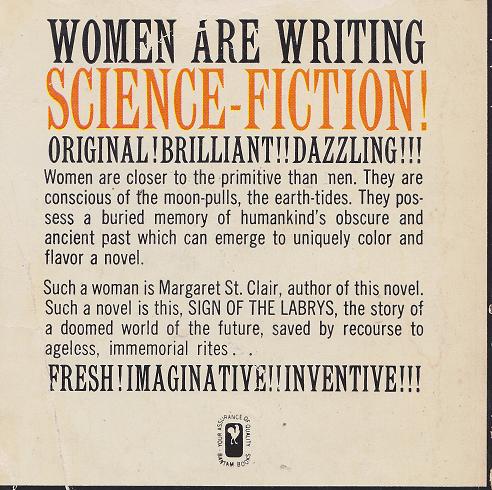The debate about science fiction and fantasy’s inherent gender imbalance (particularly acute in the UK) is rumbling on and one of the latest flashpoints has been the editing of the Solaris Book of New Science Fiction, yet another anthology series heavily skewed towards male contributors. Rose Fox has probably the best summing up of the whole conflagration, the ebb and flow of which is intensely familiar to everybody familiar with Racefail two years ago. The editor of the series is called out, defends himself, more people chose sides, rhetoric gets overblown on both sides and it all gets a bit heated with the original point obscured. Which in turn prompts Cheryl Morgan to go meta and explain why these sorts of contratempts are counterproductive:
Before going into the specific issue at hand, let me say that I think anthology bashing is not terribly helpful. Looking at a single anthology, you have no idea where the real problem lies. It could be the editor, it could be the publisher, it could be the submissions, you can’t tell. Also, just as an individual’s reading and voting habits are more likely to be a product of cultural conditioning than of conscious sexism, so an individual editor is more likely to choose stories based on cultural conditioning than a deliberate intention to exclude a particular group of writers. The objective of pointing out gender imbalances (or any other sort of imbalance) should be to encourage people to examine their cultural conditioning, not to decide who we are going to burn at the stake.
I disagree.
Yes, these confrontations are unpleasant for everybody involved, but if you are worried about the gender imbalance in science fiction and would like to see more women being published, than you do need to rake editors over the coals when they produce female free anthologies. That the whole sf&f publishing field is guilty doesn’t excuse individual failure; blame is a renewable resource. It doesn’t matter why a given anthology has few or no female contributors, only the end result matters. Just like readers like me need to address their biases in chosing who they read, so editors need to work towards getting more female writers published if they care about the gender imbalance of fantasy and science fiction. It’s hard is not an excuse to not do this.
And especially because the majority of editors and publishers isn’t consciously deciding to be sexist and to ignore women, it’s important to call them out on their subconscious but systemic biases. Each controversy like this carries the message that it’s wrong to publish anthologies skewed towards male writers, that you will need to pay attention to which writers you approach and accept submissions from, or you might find yourself in the centre of a shitstorm. Confrontation and “anthology bashing” are necessary tools, if not always the right tools…
All of which also means that, if you’re a reader concerned about the huge gender imbalance in science fiction, you should not buy any anthologies that makes this worse. I therefore won’t buy any anthology that isn’t at least forty-sixty percent women-men. No matter how good it is.
